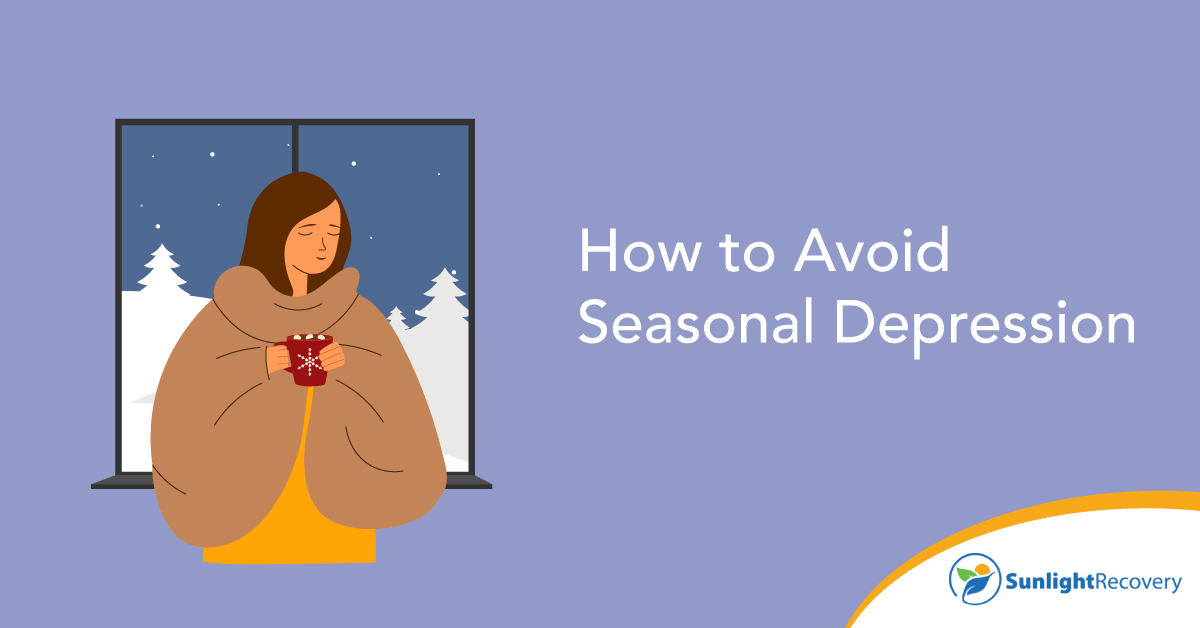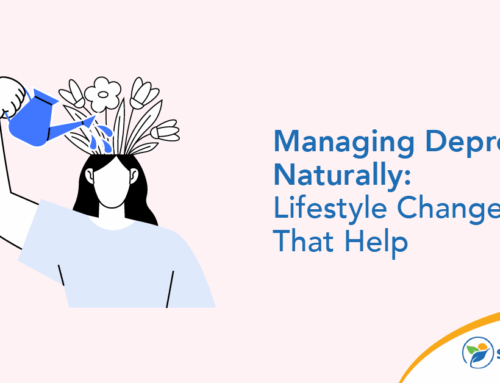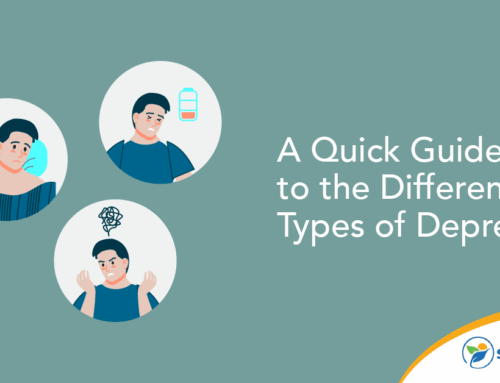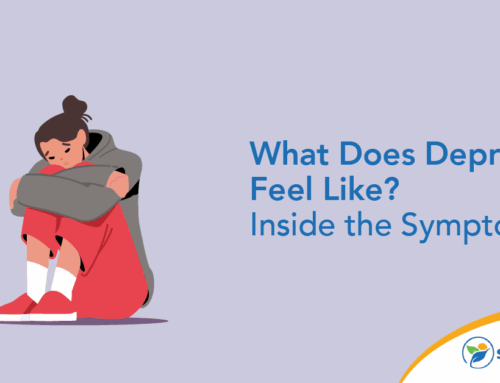If you’ve ever felt sadness or a loss of energy as the seasons change from one to another, you may have experienced seasonal depression. Also referred to as seasonal affective disorder (SAD), this condition affects less than 3% of the population throughout the United States but tends to target those who already struggle with major depressive disorders. If you’re trying to figure out how to avoid seasonal depression, the good news is that help is available. By understanding what triggers your seasonal depression, you can help reduce its impact and stay happier year-round. In this blog, we cover the symptoms of seasonal depression and the steps you can take to combat the blues.
How to Avoid Seasonal Depression by Recognizing Patterns and Common Triggers
Seasonal depression can happen any time of the year, but it tends to be more noticeable and get worse in fall and winter. This is due, in part, to the end of daylight savings time. Days get shorter, and many people aren’t exposed to as much sunlight. Also, colder temperatures and poor weather conditions tend to keep people indoors most of the time. Most cases of seasonal depression go away as soon as the seasons change, but for some, the symptoms and condition can be severe and have an impact on daily activities.
Common symptoms of seasonal depression include:
- Loss of interest in activities
- Low levels of energy
- Changes in sleep
- Changes in eating habits
- Feelings of sadness and despair
- Weight gain
- Decreased sex drive
- Difficulty concentrating
Identifying what triggers SAD can help you learn how to prevent seasonal depression. While these patterns may differ from one person to another, a few common things can trigger an SAD episode:
- Reduced sunlight exposure. Too much sun exposure can cause long-term health effects, but not getting enough sunlight can be just as bad. Sunlight provides your body with essential vitamin D, which helps keep your bones healthy, reduces inflammation and ensures you have a healthy immune response. Lack of sunlight can also affect your body’s natural clock or your circadian rhythm, which can make it hard to sleep at night and cause you to have less energy. Some studies show that lack of sun exposure can also slow down your metabolism and make it easier for you to gain weight.
- Lack of exercise. It’s easy to avoid exercise when it’s colder outside, but studies have shown a direct relationship between lack of exercise and levels of depression. Exercise may reduce depressive episodes by as much as 25%, which makes it an excellent preventive if you want to know how to avoid seasonal depression.
- Holiday stress. Approximately half of Americans say they experience elevated levels of stress during the holidays, with financial concerns listed as the main reason. Family conflicts can also make the holidays less jolly.
- Colder temperatures. As it gets cold outside, people spend more time indoors. This can lead to isolation and feelings of loneliness.
Maintain a Balanced Routine With Light Exposure, Exercise and Healthy Eating
Knowing how to prevent SAD can help you maintain your mental health year-round. One way to do that is to make lifestyle changes that counteract the winter blues. Despite the cold, try to get outside for a few minutes during the daylight hours. Choose the afternoon, which is usually the warmest time of day. Incorporate a short walk to the mailbox or park further away from the storefront. This will help you get sunlight and exercise. Light therapy can also mimic the effects of the sun when you’re unable to get outdoors. Just 20 to 30 minutes under a light therapy box is enough to help reset your circadian rhythm and improve your health.
A healthy diet can make you feel more alert and lead to better mental health. Sugar and processed foods increase inflammation in the body and brain, which may contribute to mood swings and seasonal depression. Incorporate complex carbohydrates, such as brown rice, quinoa and sweet potatoes, lean proteins and fatty acids into your daily diet.
Stay Socially Connected and Reach Out for Support
A solid support network of friends and family can help you navigate life’s challenges and improve your mental health. However, staying connected when the weather is bad can be a challenge. There are a few things you can do to ensure you’re getting enough time with those you love.
- Plan regular meetups. Whether it’s a coffee date, a movie night or watching the game together, schedule regular time with your loved ones. Even a short visit can be enough to keep your spirits up.
- Volunteer. The holidays are an excellent time to volunteer your time to those in need. By helping others, you can shift the focus from your struggles.
- Send a text. Texting is a convenient way to reach those who know you best and can be an excellent source of comfort.
- Join a support group. Ask your health care provider for recommendations on mental health support groups. Sometimes, talking to those who share similar experiences can make a difference.
Try Mindfulness and Stress Management Techniques
Mindfulness is the practice of focusing on the present moment. It can help you become more aware of yourself, others and the world around you. You can achieve this through yoga, meditation and deep breathing. Try to spend at least 10 minutes a day to clear your mind, reduce stress and improve your mood.
Stress management includes any activities you find enjoyable. This may include journaling, painting, watching your favorite show, listening to music or reading. Focus on hobbies that bring you joy and provide a distraction.
Know When to Consider Professional Help or Therapy
It’s natural to occasionally feel sad and depressed, but when it begins to impact the quality of your life, it may be time to schedule an appointment with a professional. If you note any of the following, be sure to reach out for help.
- Constant feelings of sadness
- Trouble sleeping
- Changes in eating habits
- Feelings of worthlessness
- Loss of interest in activities you once loved
Therapists can help you discover how to avoid seasonal depression and offer other treatment options, such as medication, supportive counseling and talk therapy.
Reach Out for Help
If you’re struggling with poor mental health and want to learn how to avoid seasonal depression, contact Sunlight Recovery to learn about our treatment options. Our caring professionals can help you get started on the path to recovery.







